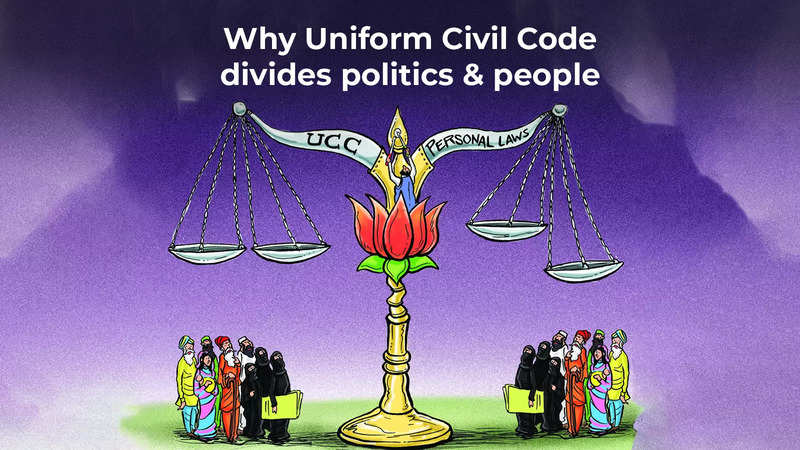UNIFORM CIVIL CODE IN INDIAN SCENARIO
UNIFORM CIVIL CODE IN INDIAN SCENARIO
How full proof will be the uniform civil code? Will there be more abuse and less obedience of uniform civil code? Will uniform civil code have negative effect on the society? Such questions are bound to be raised after the implementation of the Uniform Civil Code. All laws are formulated to be obeyed, but they are abused. This does not mean that law should not be enacted. Similarly, there is a grea t possibility of the uniform civil code being abused, but this should not eschew the Parliament from enacting the Uniform Civil code; the social welfare and benefits resulting from the implementation of uniform civil code are far greater.
While explaining the reason for including Article 44 in the Directives Principles, it was observed that “When you want to consolidate a community, you have to take into consideration the benefits which may accrue to the whole community and not to the customs of a part of it. If you look at the countries in Europe, which have a Civil Code, everyone who goes there forms a part of the world and every minority has to submit to that Civil Code. It is not felt to be tyrannical to the minorities.”
Some legal experts argue that progressive law is welcomed but a suitable atmosphere must be created in which all sections feel secure enough to sit together and cull out the most progressive of their personal laws. But this can be answered by an example of Hindu law. When the Hindu Code Bill, which covers Buddhist, Sikhs, Jains as well as different religious denominations of Hindus, was notified, there was a lot of protest. And the then Law Minister, Dr. Ambedkar, had said that for India’s unity, the country needs a codified law. In a similar fashion, the uniform civil code can be implemented, which will cover all the religions, whether major or minor, practiced in India and any person who comes to India has to abide by the Code.
Not many know that a uniform civil code exists in the small state of Goa accepted by all communities. The Goa Civil Code collectively called Family Laws, was framed and enforced by the Portuguese colonial rulers through various legislations in the 19th and 20th centuries. After the liberation of Goa in 1961, the Indian State scrapped all the colonial laws and extended the central laws to the territory but made the exception of retaining the Family Laws because all the communities in Goa wanted it. The most significant provision in this law is the pre-nuptial Public Deed regarding the disposal of immovable and movable property in the event of divorce or death. During matrimony, both parents have a common right over the estate, but on dissolution, the property has to be divided equally; son and daughters have the equal right on the property. As the procedure involves compulsory registration of marriage, this effectively checks child and bigamous marriage. 46 The philosophy behind the Portuguese Civil Code was to strengthen the family as the backbone of society by inculcating a spirit of tolerance between husband and wife and providing for inbuilt safeguard against injustice by one spouse against the other.
Commenting that the dream of a uniform civil code in the country finds its realization in Goa, former Chief Justice of India Y.V. Chandrachud had once expressed hope that it would one day awaken the rest of bigoted India. The section of the nation against the implementation of uniform civil code contends that in ideal times, in an ideal State, a uniform civil code would be an ideal safeguard of citizens’ rights. But India has moved much further from ideal than when the Constitution was written 50 years ago.

Comments
Post a Comment